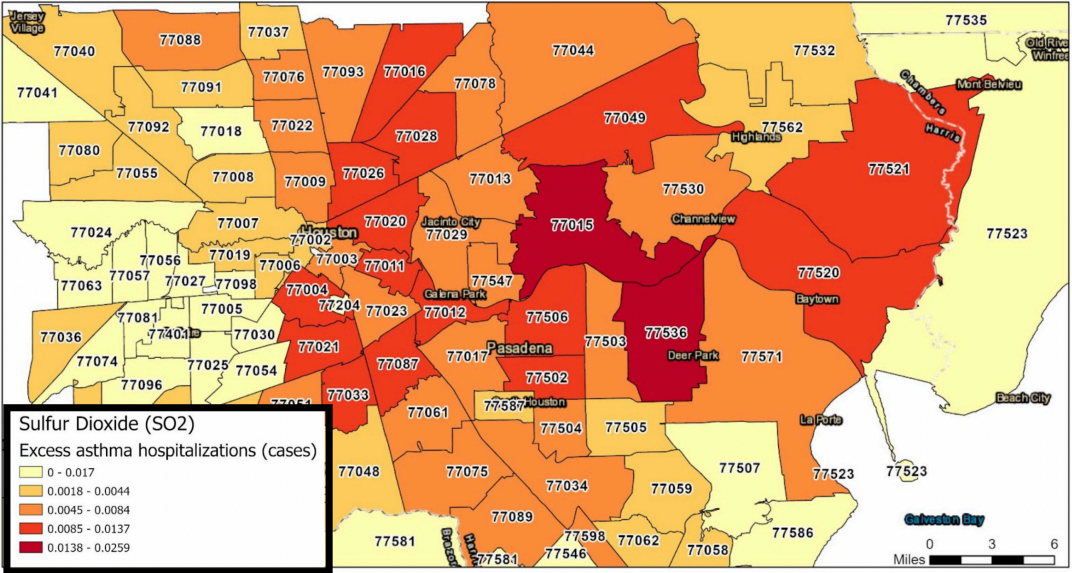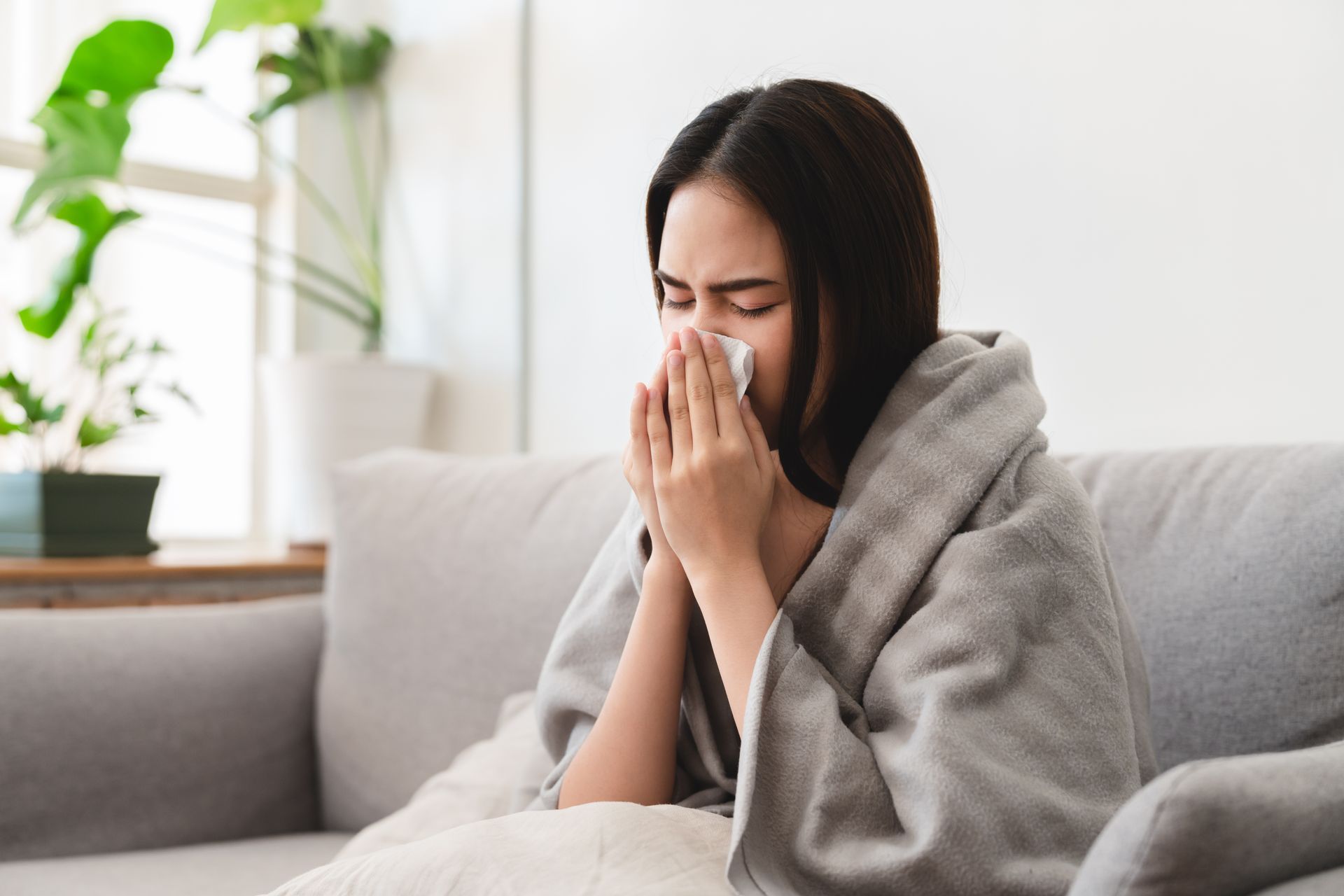Asthma is a significant concern in Houston, where environmental factors and the climate often intensify symptoms. Across Texas, more than half a million children are living with asthma (Texas Health and Human Services).
Using this comprehensive asthma overview, you can start learning about the most common triggers in the Space City's environment. Follow practical steps, from tracking air quality to
partnering with a care team specializing in asthma and chronic disease management.
Breathe Easy Again
Understanding Asthma and Its Triggers
You may have heard various things about asthma, some of which are factual while others are misconceptions. In the medical community, asthma is classified as a chronic condition, meaning you can manage it with medication, lifestyle adjustments, and other interventions.
This condition affects the lung airways and causes inflammation, leading to difficulty breathing, wheezing, and chest tightness. Common
asthma triggers to avoid include:
- Allergens
- Irritants
- Too much exercise
- Stress
Asthma Triggers Specific to Houston
Controlling asthma before it strikes requires learning a bit about the local environment. While the city maintains a temperate climate that supports lush vegetation and an ideal outdoor lifestyle, it also encourages the growth of pollen-releasing flora.
Industrial emissions and seasonal factors, such as winter respiratory illnesses, complicate asthma flare-ups and worsen lung conditions. Here’s a detailed breakdown:
Air Quality and Pollution
The Air Alliance Houston study highlights a concerning connection between industrial emissions and respiratory health in Houston. Pollutants like PM2.5, sulfur dioxide (SO2), and nitrogen oxides (NOx) are more than just numbers—they directly affect breathing and
cause increased asthma hospitalizations.
Air quality in Houston varies by season:
- Summer's hot temperatures and stagnant air increase ozone levels.
- Winter's cooler weather reduces ozone but raises particulate matter due to heating and energy demands.
- Storm season's sudden weather changes stir up dust, pollen, and mold, aggravating asthma symptoms.
Allergens: Pollen and Mold
Asthma triggered by pollen is linked to various plants commonly found in Houston, including:
- Cedar
often releases pollen from late winter to early spring.
- Oak trees cause flare-ups in the spring.
- Ragweed
is notorious for releasing pollen in late summer and fall.
Mold thrives in damp conditions, and spores can quickly become airborne, triggering asthma symptoms when inhaled. You'll find them in bathrooms, basements, and outdoor piles of leaves or damp wood.
Weather: Humidity, Heat, and Storms
The Space City's hot, humid climate can set off asthma attacks. High humidity levels during summer make the air feel thicker and harder to breathe.
Storms and heavy rain tend to stir up mold spores and dust, while the wind can carry pollen and pollution. For asthma patients, this means sudden or frequent flare-ups.
Cold Air and Viral Illnesses
Starting in November, Houston city folks will experience cooler weather, averaging temperatures below 70°F. Cold air tends to restrict airways, so working out can trigger symptoms like shortness of breath.
Avoid strenuous activities and be cautious in colder months, as they can increase respiratory infections and worsen asthma symptoms.
Call (281) 889-6026
to book a flu immunization appointment with Houston Family Practice.
Managing Asthma in Houston
Effective asthma management
is
possible—with the right strategies and support. Here's a concise overview to guide you:
Track and Monitor Symptoms
Stay mindful: track symptoms and triggers to identify patterns and adjust your management plan as needed. When unsure, consult your physician about modifications in your care plan.
Reduce Exposure to Local Triggers
During peak pollen seasons, use air purifiers and monitor pollen counts. Make a habit of wearing a mask when going outside. Stay indoors during high-pollution or stormy days, and check local air quality indexes (e.g., AQI apps).
Medication and Treatment
Work with an experienced clinician to maintain an asthma action plan and take prescribed medications, such as inhalers or preventive treatments, as directed.
Local Resources for Asthma Care
If you want to start learning about asthma online, check out the American Lung Association’s Asthma Resource Library. For in-person support, Houston offers access to clinics and specialists who can provide tailored care to help you manage asthma, including:
1200 Binz Street, Suite 400,
Houston, Texas 77004, United States
Lifestyle Changes to Improve Asthma Control
Habits can be tough to change, but lifestyle modifications can significantly cut your health costs. A personalized care plan is key to achieving a healthier diet, regular exercise, and better stress management.
Besides medical advice, partnering with experts at Houston Family Practice ensures you stay on track and adjust lifestyle strategies as required.
Diet and Nutrition
While food cannot cure a chronic condition, a well-balanced diet rich in anti-inflammatory foods can enhance your body's defense against what triggers asthma. Opt for leafy greens, berries, salmon, and mackerel.
On the other hand, avoid trigger foods, which include additives (e.g., sulfites in dried fruits) and allergens (e.g., shellfish). Make reading food labels a habit and stay hydrated.
Exercise and Physical Activity
Controlled exercise helps your lungs function more efficiently. Depending on your progress, physical activities can help manage shortness of breath.
But don't be too quick to go for a jog! Consider the city’s heat, humidity, and air quality before exercising outdoors. Exercise during cooler times of the day or use your treadmill when
outdoor air quality warnings are high.
Stress Management
Did you know that stress can be a significant asthma trigger? When stress levels rise, your body reacts in ways that can worsen asthma symptoms, such as tightening airways or increasing inflammation.
So, when learning how to reduce asthma symptoms, expect doctors to recommend managing stress alongside medication. Stress-reducing techniques that you can try include:
- Yoga combines physical movement and mindful breathing.
- Meditation, even a few times a day, can lower stress hormones.
- Breathing exercises, like the Buteyko method, promote the opening of the airways.
Your Path to Better Breathing Begins Here
Houston’s distinct environment presents various asthma triggers, including:
- Pollution from traffic and industry
- Pollen and mold fueled by heat and humidity
- Sudden weather changes from storms
- Cooler temperatures that tighten airways
Combining these triggers with seasonal infections makes it difficult to enjoy the Houston weather while managing asthma. However, practical steps like tracking symptoms or following a personalized treatment plan can help you stay in control and breathe easier in any season.
At
Houston Family Practice,
Courtney Fischer-Brown, MPAS, PA-C, brings over a decade of experience in allergy, asthma, and chronic disease management to help you breathe easier. A native of Houston, Courtney values preventative health and patient education.
📞 Call (281) 889-6026 to book your appointment today! With her guidance, you can take control of your asthma and reduce the impact of common asthma triggers on your daily life.
Clinic Hours:
- Mon, Tue, Thu: 8:00 am – 5:00 pm
- Wed, Fri: 7:45 am – 5:00 pm
Take the first step toward better asthma care with Courtney and the team at Houston Family Practice.
Struggling with Triggers?
Let’s Create Your Asthma Management Plan















